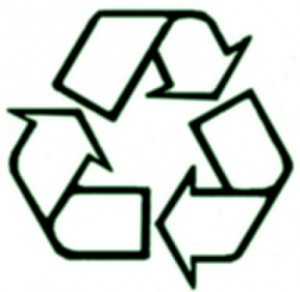Saturday is America Recycles Day; Recycle, reduce greenhouse gas emissions / U.S. EPA encourages public to do its part, find ways to increase recycling
Contact Information: Wendy Chavez, 415/947-4248, chavez.wendy@epa.gov
(11/14/08) (SAN FRANCISCO) — Trash can or recycling bin? It’s your choice. As America Recycles Day approaches, the U.S. Environmental Protection Agency encourages people to think about increasing their recycling rate to conserve resources and reduce greenhouse gas emissions.
November 15 marks the eleventh anniversary of America Recycles Day, a day dedicated to encouraging Americans to recycle and to buy recycled products. More than 35 states are holding America Recycles Day events, with state and local governments, non-profit organizations, and large industry partners promoting recycling efforts. America Recycles Day is supported by the National Recycling Coalition and sponsored by the U.S. EPA.
“Recycling is a great way all Americans can help fight global warming and protect the environment,” said Jeff Scott, the EPA’s Waste Division director for the Pacific Southwest region. “On America Recycles Day, we encourage everyone to learn about opportunities to do even more.”
The EPA’s new 2007 Municipal Solid Waste Characterization report shows Americans recycled and composted 85 million tons of the 254 million tons of total municipal solid waste produced in 2007. Each person produced on average 4.6 pounds of trash per day. Recycling increased slightly over 2006, when people recycled and composted around 82 million tons of the 251 million tons of total municipal solid waste produced.
Opportunities to increase recycling include:
University student recycling competition: This month RecycleMania opens registration for colleges and universities to compete on their waste reduction and recycling efforts. In this 2009 national competition, schools can be recognized for the highest recycling rate or the largest amount of recyclables per capita. During the 2008 competition, 58.6 million pounds were recycled and composted, preventing the release of 25,342 metric tons of carbon equivalent greenhouse gas emissions — the equivalent to eliminating the annual impact of 15,439 passenger cars; the electricity use of 11,165 homes; or the burning of coal for 440 railcars.
Go beyond recycling – compost: In addition to paper, bottles and cans, recycling also includes composting food and green waste. About 25 percent of what is still sent to landfills is food and green waste that can instead be composted and turned into a beneficial soil amendment and great nutrient in your garden.
Recycling certification training: To learn more about recycling, the California Resource Recovery Association is offering a professional certification training program this year. The training, partially funded by a U.S. EPA grant, provides classroom courses, testing, and guidance on how to implement a recycling or composting program. Recycling provides economic benefits by reducing costs to businesses and creating jobs. The American recycling and reuse industry is a $200 billion enterprise that involves more than 50,000 recycling and reuse establishments, employs more than 1 million people, and generates an annual payroll of approximately $37 billion.
For more information on America Recycles Day, visit:
http://www.nrc-recycle.org/americarecycles.aspx
For more information on RecycleMania, visit:
For more information on composting, visit:
http://www.epa.gov/region09/waste//organics/index.html
For more information on Recycling Professional Certification:
http://www.crra.com/certifications/index.html

